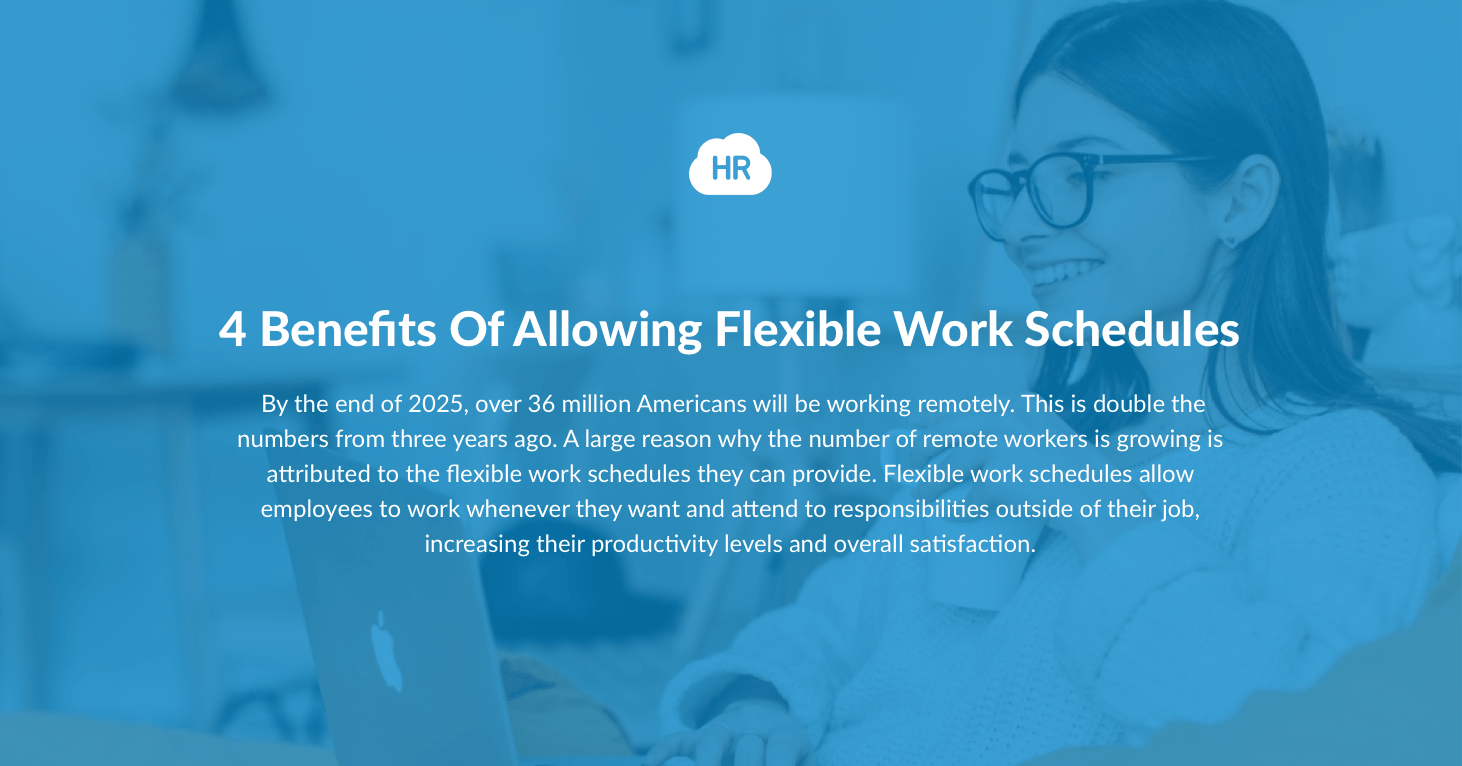

 Cut onboarding time
by 60%—here's the
Ultimate Checklist
that helped do it.
Cut onboarding time
by 60%—here's the
Ultimate Checklist
that helped do it.

Remote work was here long before COVID was present, although it was rarely implemented. Now studies listed on Small Biz Trends inform us that remote work will now become commonplace — even after the effects of the pandemic have passed. By the end of 2025, over 36 million Americans will be working remotely. This is double the numbers from three years ago. A large reason why the number of remote workers is growing is attributed to the flexible work schedules they can provide. Flexible work schedules allow employees to work whenever they want and attend to responsibilities outside of their job, increasing their productivity levels and overall satisfaction.
For a more in-depth discussion on benefits, however, we've outlined a couple below:
Improves productivity levels
Flexible work means being able to make time for other things, like hobbies. And it just so happens that being able to indulge in said hobbies can greatly increase productivity — a testimonial on Harvard Business Review wrote as much. According to Gaetano DiNardi, a marketing lead for Nextiva, spending time on his guitar between work hours allowed him to take breaks and reawaken his creativity, leading him to perform better at his job. It even boosted his "creative confidence."
"When I face a tough challenge at work and feel stymied, I can start to question whether I’ll ever figure out a successful solution," he admits. "But after an hour of shredding on the guitar, hitting notes perfectly, I’m feeling good [...] And when I face that work project again, I bring confidence with me."
All in all, when people have time for their passions, it positively affects their work performance.
Attracts more talent
Since many people have experienced the benefits of flexible working hours, most of them prefer maintaining this work setting. In our article entitled Job Applicants Want Remote Work Than Ever Before, we discussed how 70% of employees prefer a remote working position over an in-office one, simply because of the convenience and flexibility of it. Companies that implement flexible job options attract more job seekers and gain new hires. Consequently, more applicants mean a greater and more diverse pool of talent to choose from.
Increases job satisfaction
Working from home or any location enables employees to have more time to attend to their other duties, like family. Lauren, one of the remote nurse practitioners featured by telehealth network Wheel testified how a flexible remote work setup has granted her the opportunity to fulfill her role as a mom.
"I am able to be an active parent, support my husband as a teacher, and make time for myself," she says. The flexibility of her job has even helped her settle into her new home without the added stressors, and she has never been happier. And when you have a happy and satisfied employee, a myriad of good things will follow, such as better work outputs, a more positive workplace culture, and, most importantly, an increased likelihood of staying in the company. This leads us to our next point.
Decreases employee turnover
The more satisfied workers are, the less likely they are to quit and find a job somewhere else. And as previously mentioned, many employees are happy with a flexible, work from home setup. Research mentioned on PR Newswire even states that many people prioritized the benefits of flexible work schedules over a promotion or higher role, and would gladly stay in a company that offered such a perk.
Moreover, the hiring process requires more resources because of the background checks, interviews, and training that you have to do. Retaining happy and loyal employees is better for your business than recruiting new hires.
Flexible work schedules are now part of what job seekers look for and what employees hope their company would start or sustain. It increases productivity, improves satisfaction, decreases employee turnover, and attracts a lot of talent.
Author Bio: This article is written by our marketing team at HR Cloud. HR Cloud is dedicated to providing powerful solutions for your HR teams and creating an exceptional employee experience. Our aim is to help your company improve employee engagement, onboarding, and to save you valuable time!
Keep Reading
Internal vs External Communication: A Practical Guide for Modern Teams
Internal vs External communication. Yes, most organizations treat internal and external
7 Proven Tips to Manage and Resolve Conflict in the Workplace (Free Toolkit Inside)
Conflict at work is normal. But if left unresolved, it can result in increased workplace
Global Employee Onboarding: Creating a Seamless Experience Across Borders
In today's interconnected business landscape, companies are expanding beyond geographical
Like What You Hear?
We'd love to chat with you more about how HR Cloud® can support your business's HR needs. Book Your Free Demo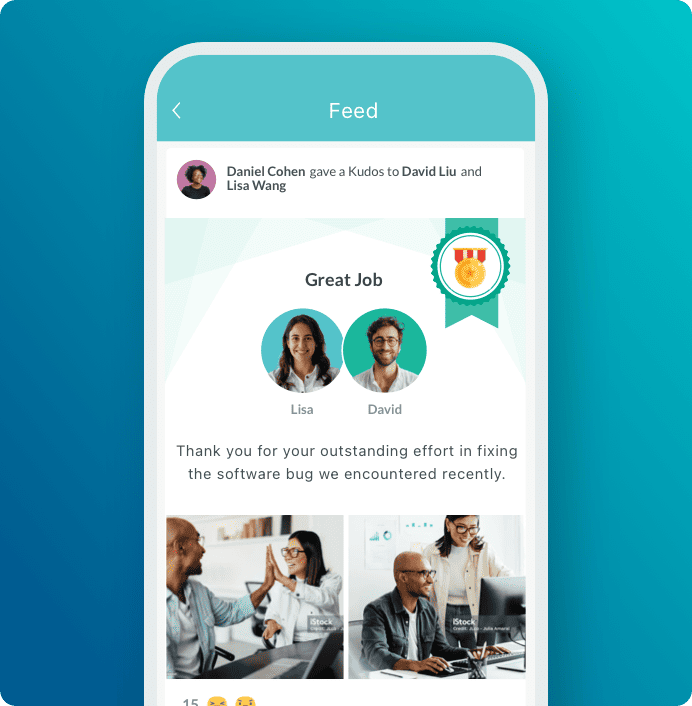
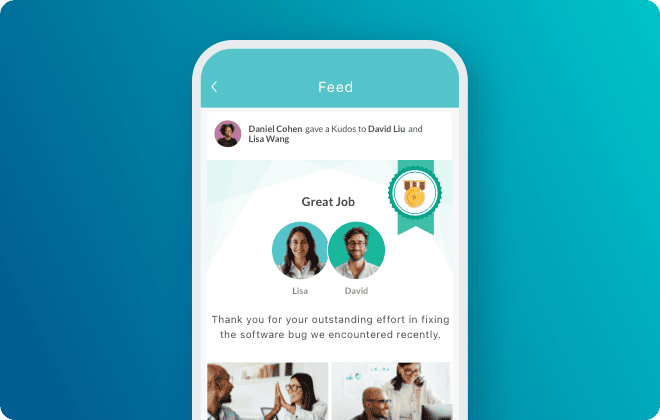
See Workmates in action
Your culture upgrade starts here. Take a quick tour or book a live demo.
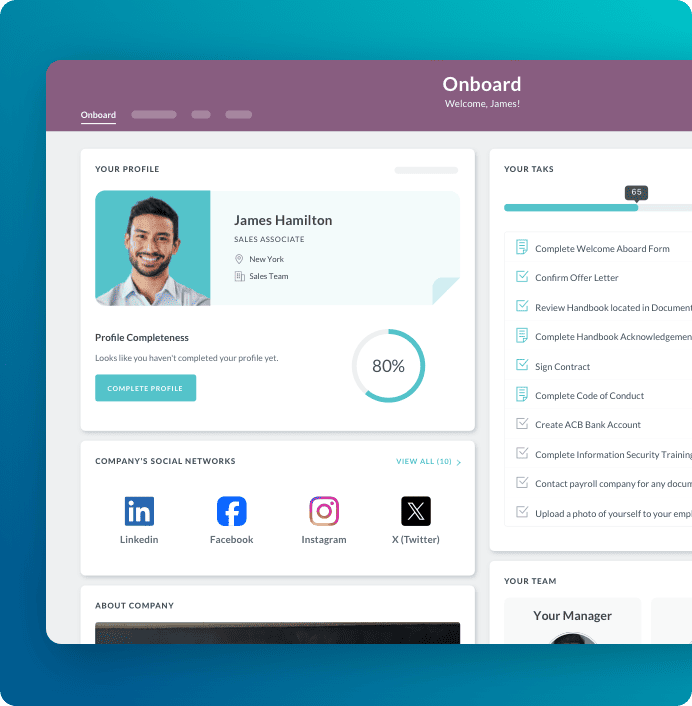
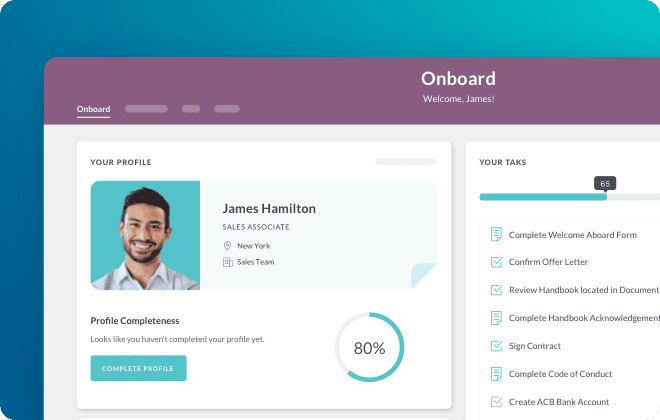
Cut onboarding time by 70%
See how growing teams streamline onboarding and save hours for every new hire.
